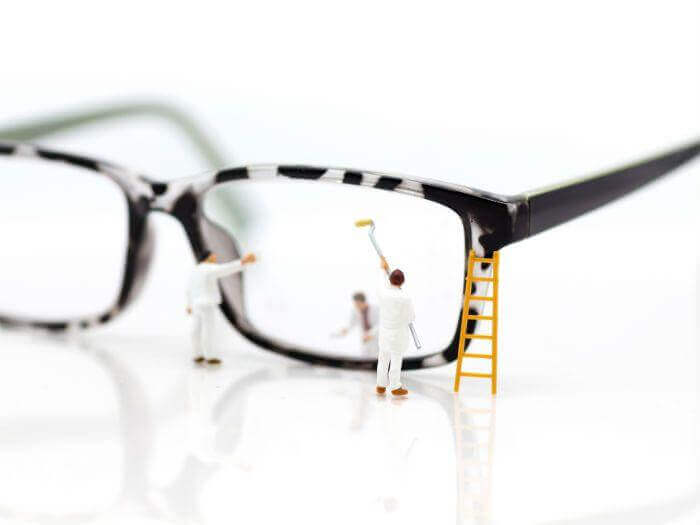What is 20/20 Vision?
/What Does 20/20 Vision Mean, Really?
While 20/20 is a term that most people widely use to describe “perfect” vision, very few truly understand what those numbers refer to, and it’s actually way more interesting than you might think…
20/20 vision is a term used to describe a perfect “visual acuity ratio”, the ability to discern fine detail; in other words perfect vision.
Which leads us to the next question…
What is Perfect Vision?
What unit of measurement does the 20 in 20/20 vision refer to?
In a 20/20 vision, the top number refers to the testing distance —it is standard in the US to test at 20 feet distance from the eye exam chart (Europe tends to use 6 meters) —and the lower number refers to the letter size and is actually somewhat arbitrary: A “20 foot letter” refers to a letter that subtends 5 minutes of arc.
What does that mean?
Allow me to explain…
Seeing 20/20
If you look at a letter “E” from the 20/20 line on an eye exam chart and traced a line from the top and bottom of the “E” to the center of your eye forming a triangle the angle formed at your eye would be 5/60th of a degree, or “5 minutes of arc.
Why they chose 5 minutes of arc doesn’t entirely make sense since people with perfect vision can actually discern 4 min of arc, which is better than 20/20 vision and closer to 20/15.
The nice thing about the visual acuity ratio, however, is that you can theoretically test from any distance. If you stand 30 feet away from the chart and use a 30 foot letter size, 30/30 vision the ratio of 1:1 still yields the same acuity as 20/20 since at 30 feet the bigger 30 foot letter would still subtend the same 5 min of arc: stuff that is farther away needs to be bigger to see.
If we keep the testing distance the same, as we traditionally do in optometry, the relative size of the denominator on the bottom of the fraction denotes how “good” the vision is. 20/40 vision means that the smallest letter you can see on the eye exam chart is twice as big as a 20/20 letter. 20/200 vision means the smallest letters you can read are 10x larger than the 20/20 letters.
Conversely, you could say that if you have 20/40 vision, you would have to stand at 10 feet to see the same letters a person with 20/20 vision standing at 20 feet.
So after reading that explanation, I don’t blame anybody for simply saying that 20/20 is very good vision. Don't fret the details.































